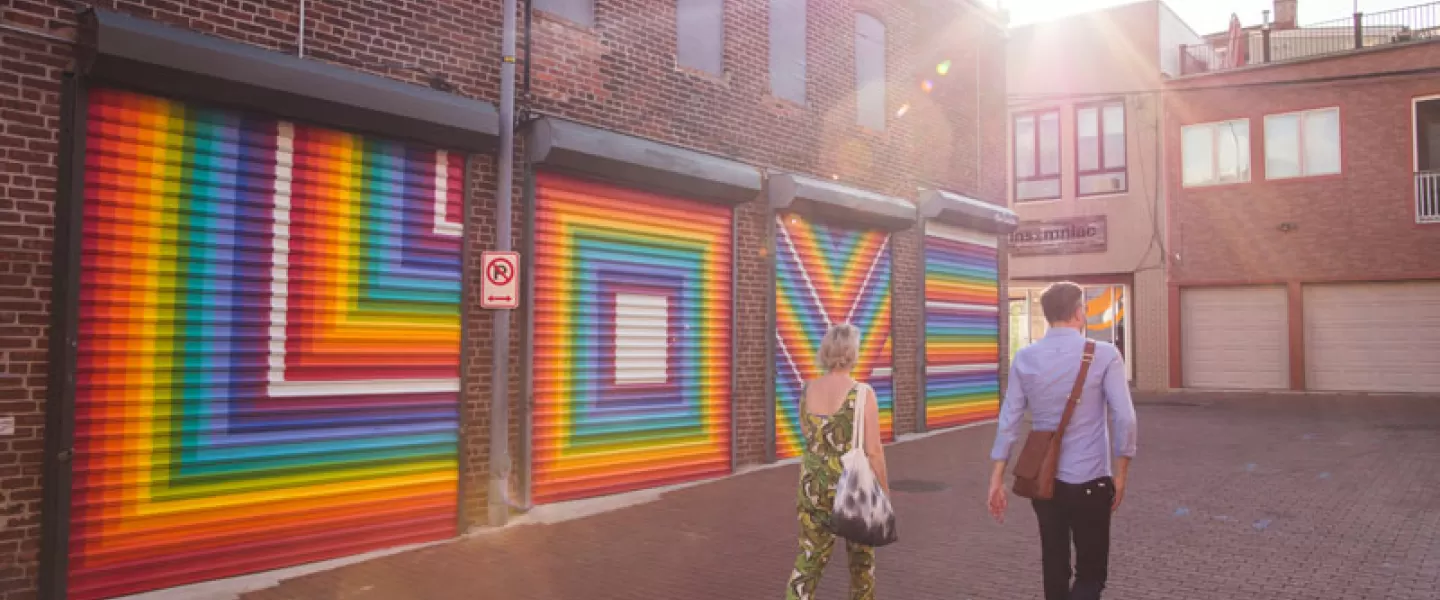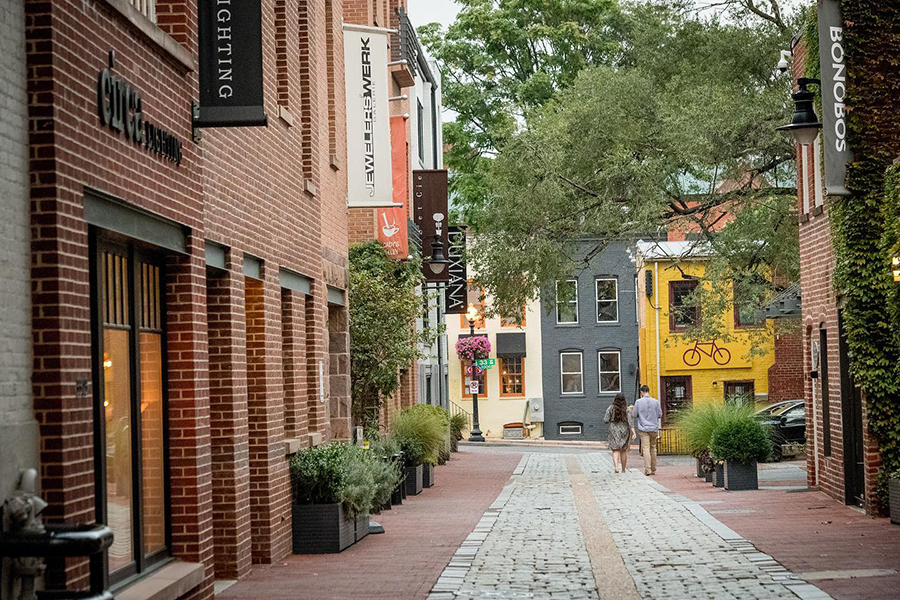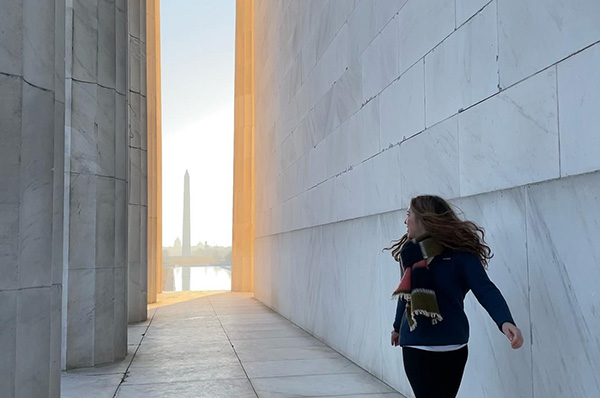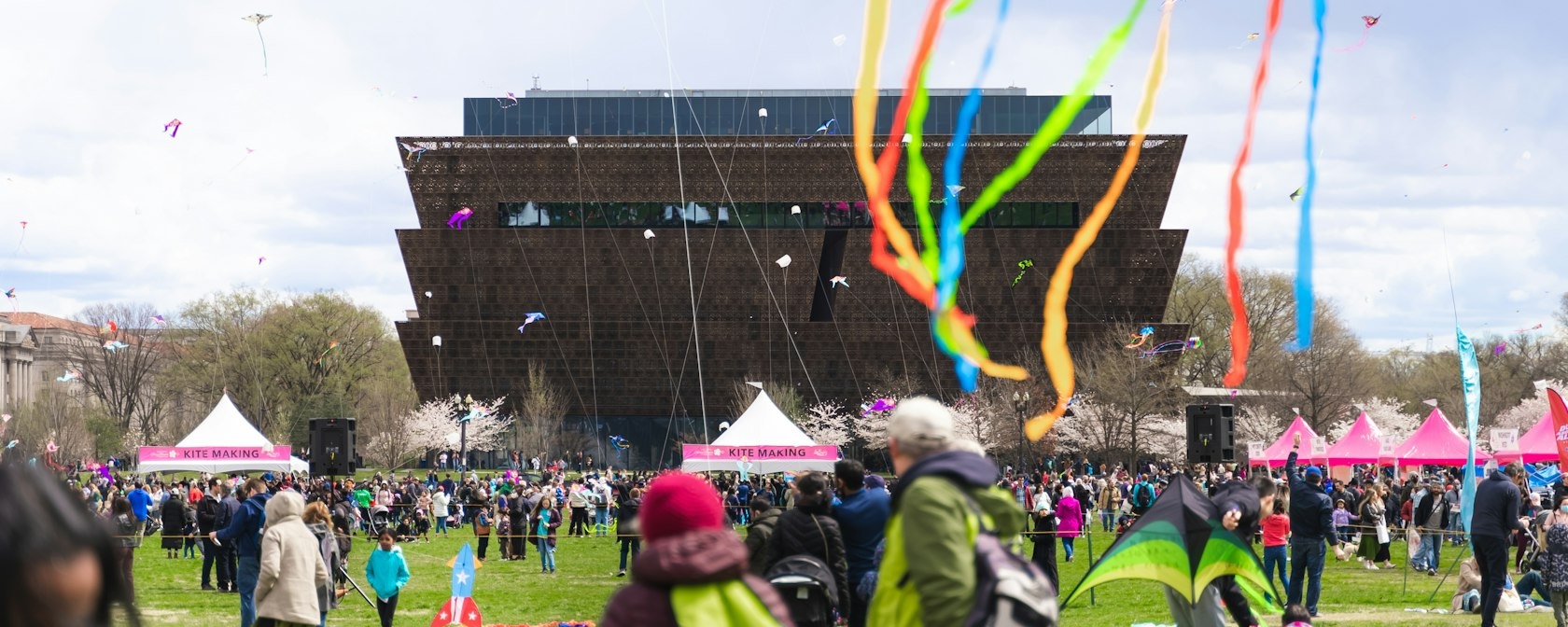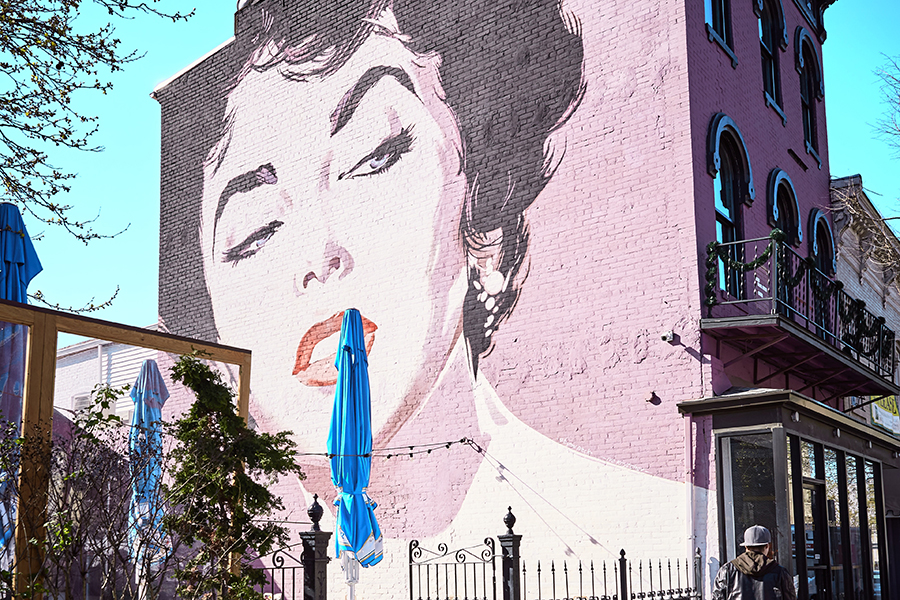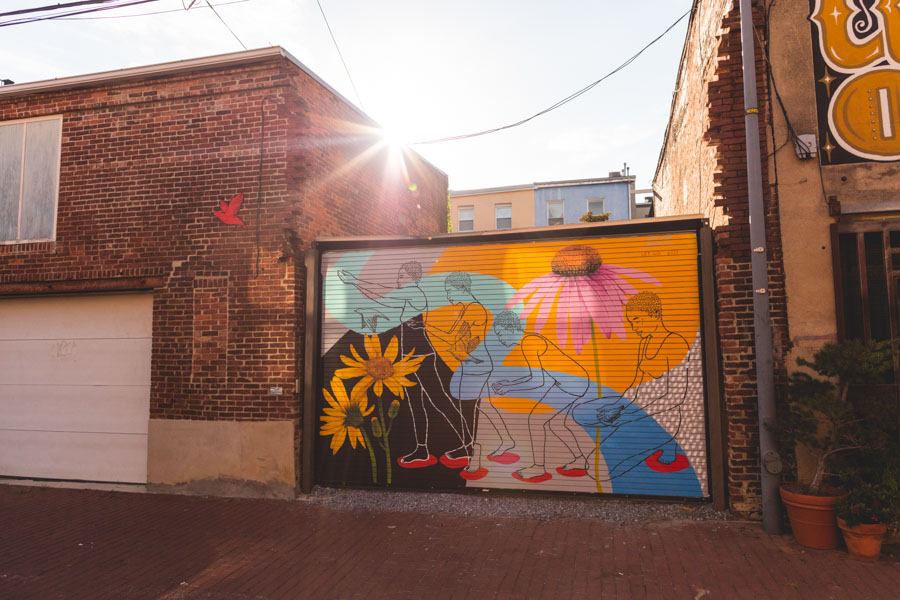
Discover the historic (and somewhat hidden) backstreets that house some of DC's most sought-after restaurants, bars and real estate.
In the 19th century, hundreds of brick-paved alleys hid behind the District’s rowhouses. There were networks of stables, workshops and bare-bones homes where working-class families established communities out of public view. In the Progressive Era, many of these backstreets were declared unfit for living and the majority of residents were displaced.
Few of DC's alleys remain, but the ones that do are beloved for not only their quaint appearance but their ability to create community – past and present. Now, it is ambitious restauranteurs, funky baristas, local mural artists and innovative designers that call these historic sites home.
Blagden Alley & Naylor Court
Shaw Neighborhood

Shaw's neighboring alleyways were designated a historic district by the National Park Service. The photogenic and hip Blagden Alley is home to the outdoor DC Alley Museum – a series of colorful murals painted on garage doors and building walls that includes Lisa Marie Thalhammer's LOVE mural, a massive musical tribute to Sun Ra and Erykah Badu and mosaic images that pay homage to the working-class immigrants and Black families that once called the street home.

Tiger Fork
There's even more to Blagden Alley than meets the eye – the redeveloped carriage homes hide some of the most revered culinary destinations in the city, the outlines of which are visible within revamped entryways, restaurant walls or decorative murals. La Colombe's first coffee-roasting outpost in the District maintained many of its original architectural features, making it a must-visit in this famous alley's lineup of hidden gems.
Through contemporary farmhouse doors you'll find The Dabney's wood-fired Mid-Atlantic cuisine. Identify the black-and-white parakeet mural on the side of Causa/Amazonia, which touts award-winning Peruvian food and a low-key rooftop bar. Next door, the bar at Hong Kong-inspired Tiger Fork can be viewed through an octagonal window inserted into a former garage door. For a secluded garden vibe with an antique greenhouse, pop into Calico.

SUNdeVICH
Architects’ studios and private homes are prevalent along Bladgen Alley’s tinier, U-shaped neighbor Naylor Court. Keep an eye out for a vestige of former inhabitant E.J. Adams & Co. Stables, and don't forget to stop by Sundevich, which transports customers to a different city of the world with each menu item.
Cady's Alley & Blues Alley
Georgetown Neighborhood
If Blagden Alley and Naylor Court cater to food gurus and art lovers, Cady's Alley is for design aficionados and people-watching. This brick- and stone-lined pathway is the heart of Georgetown's Design District, where showrooms and boutiques inhabit the skeletons of industrial properties. Antiques, jewelry, luxury clothing and local DC-brands are among the treasures you'll find.
Cady's Alley also contains plenty of options to cap your shopping excursion. Step into the modern Kyojin for a high-end, sushi-sampling experience. Or, keep it quaint with the old-school Kafe Leopold, where you can spend a European afternoon sipping a specialty Austrian coffee on the courtyard. Visitors can access the walkway from 3300 M Street NW or from M and 33rd or 34th streets.
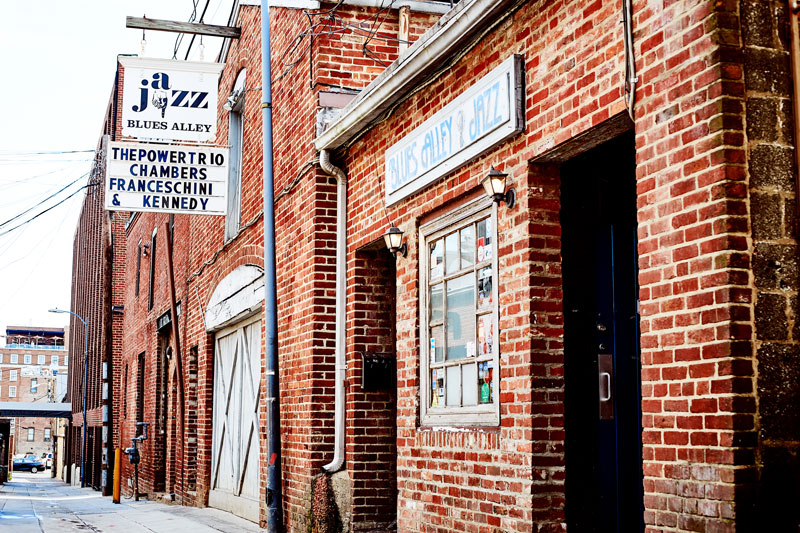
The next alley over sees less foot traffic – and fewer designer shoes – but has hosted many of the greats at its namesake destination: Blues Alley Jazz Club. The other occupant of this small street is Hinckley Pottery, a locally owned and run ceramics studio and shop that lives in a 125-year-old horse stable.
Bonus: just before you hit the busy intersection of Wisconsin and M, turn into the narrow alleyway beside the Abercrombie and Fitch for a Belgian beer at The Sovereign.
Library Court NE+
Capitol Hill Neighborhood

© Deane Madsen
Take a walk through the Capitol Hill neighborhood to discover some of DC's historic alleyways, planned by Pierre L'Enfant to provide access points for working class citizens to discreetly enter the homes of their elite employers. In the shadow of the Library of Congress between 3rd and 4th Streets NE is one of the most notable – and narrow – residential streets in the area. Three courts (Library, Millers and Frederick Douglas) give way to each other, barely wide enough to fit a car and, in some spots, with just enough greenery to suggest a path less traveled. The residential homes along these passageways provide a window into life between the District's busy streets; keep wandering the quaint streets and you'll likely land on a street with landmark status.
Morse Street Alley
NoMa Neighborhood / Union Market
Between 4th and 5th Streets NE at the center of the former wholesale hub, you'll find an easy-to-miss gem within the 200-year-old Union Market District. On first glance, there appears to be only back entrances, garage doors and overgrown walls covered in colorful graffiti. Upon closer inspection, you'll find a curly white arrow painted onto the brick that indicates the door to Bread Alley – the bakery responsible for the famous bread served at Le Diplomate.
Pearl Street
The Wharf Neighborhood

While most of The Wharf's small streets are closed off to traffic, Pearl Street best captures the hidden gem-feel of some of DC's hippest alleyways. In the evenings, outdoor tables spill out onto the street under crisscrossing string lights and music can often be heard coming from the two venues that call the street home: Pearl Street Warehouse and Union Stage. People-watch with a Cuban sandwich or cocktail in hand at Colada Shop, which has folding tables and a covered patio.
Continue your tour of DC's colorful street art and throw in some other photogenic spots while you're at it.

